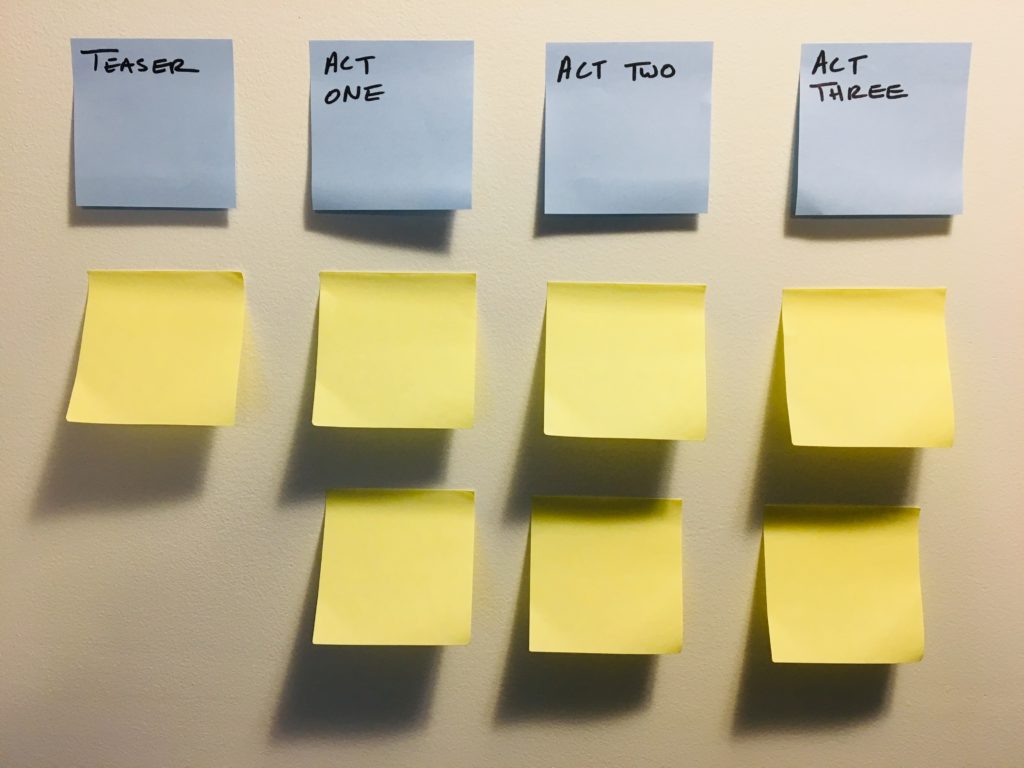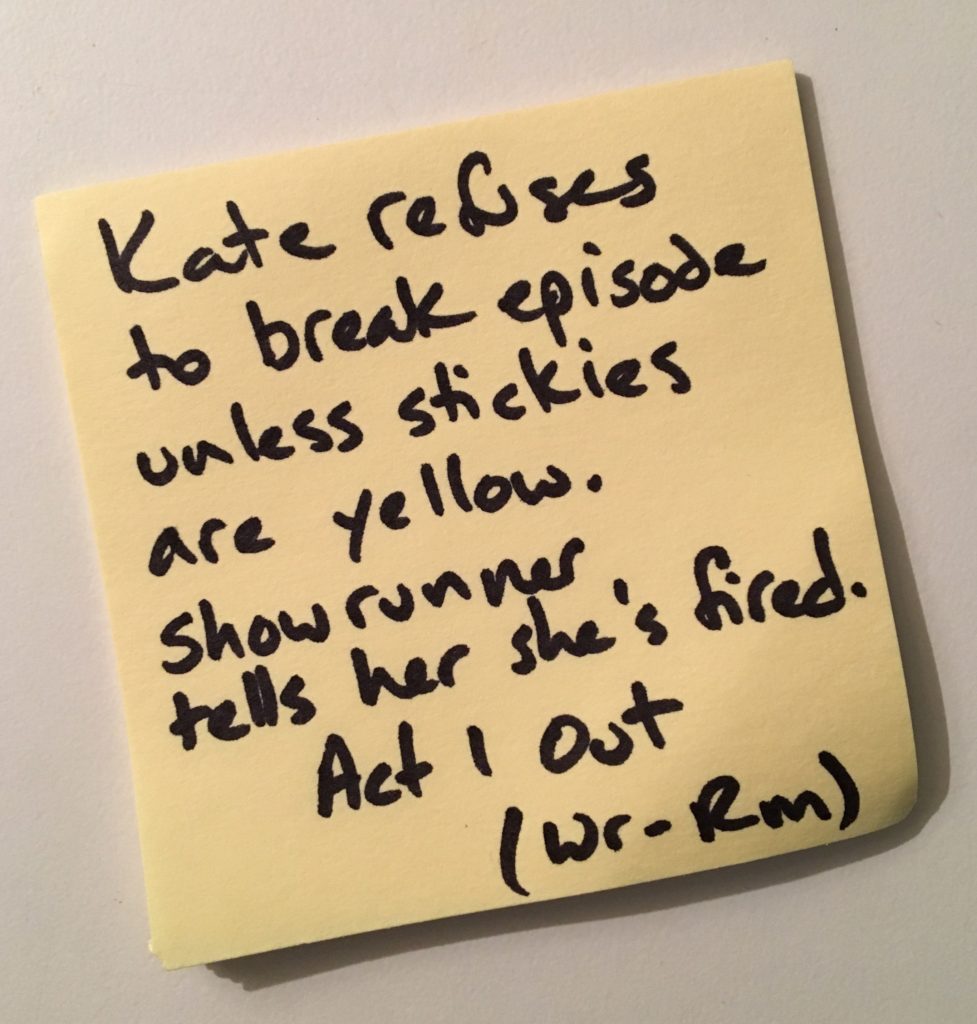
Now you really get to test your understanding of craft as you prepare to write an original spec script. This part takes discipline. You’ve got the idea and the theme. You understand your chosen conflict engines and this has helped you build and define your characters. Now you’re ready to use index cards (or spreadsheet, or stickies, or idea boards) to lay out what happens scene by scene.
Break the Episode
Keep your research, TV writing references, and theme/character notes close at hand. Take a sharpie and a thick stack of index cards (the classic) or sticky notes, or start a spreadsheet or use FInalDraft’s Index Card Summary feature, and start marking down your scenes. Your research should give you a sense of the number of scenes appropriate for your chosen genre and length of the script.
Note who is in the scene, what happens, and where it happens. Mark the function of the scene if it carries extra plot point or structural significance.

Once you have all your scenes laid out, write an outline in paragraph form or record yourself “pitching” the story card by card. Give it a few days to settle if you can afford the time and then go back to it. Does your telling of the story make sense? Does it feel right? Do you REALLY know where your story goes and what shifts need to happen in each scene? Where do you stumble a bit with the details?
How do you know for sure when you are ready to write? Here I refer you to a recent episode 413 of the Scriptnotes Podcast with John August and Craig Mazin. (They get to the topic, “ready to write,” about 30 min into the episode.)
Write Your Vomit Draft
I believe there are two keys to getting the first draft out of the way. First, convince yourself that the first draft is supposed to be a mess. It’s just a jumping-off point! No big deal. (Hense the name vomit draft.) Second, follow Stephen King’s advice on momentum from his book, On Writing. King says once he starts a project he doesn’t stop or slow down unless he has to. If he doesn’t write every day, the characters and story go stale. (p.154) I can totally relate to this and live in fear of losing momentum. It’s my project killing nemesis.
So just write! Don’t pause long enough to start doubting or disconnecting or self-sabotaging. Keep going. If you finish the first draft, no matter vile it is, you’ve really achieved something big. You can sculpt and fix and finesse and you are already well on your way.
Play: Writing Your Original Spec Script Part 1